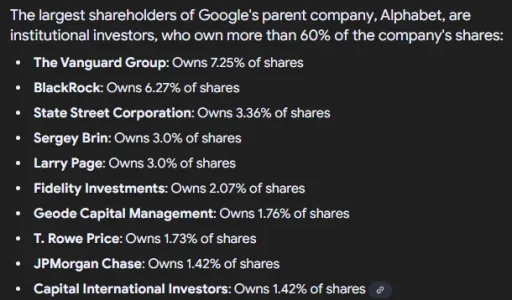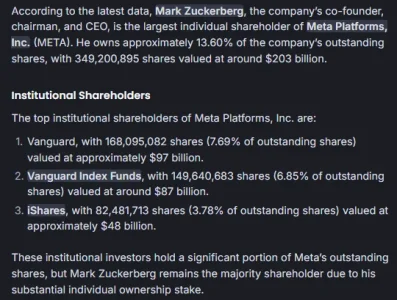TomasM
Community Member
- MBTI
- INFJ
There is all kinds of grey area related to this. Section 230, gives protection to those that provide services for hosting content. It prevents these large companies from being sued for liability if one of their patrons does something illegal. This protection, removes them from the need to censor information UNLESS a judge has ordered the removal - yet, companies have been permitted to self regulate / moderate. Now, this isn't entirely bad until they start regulating in favor of their own self interest. When content creators are getting shadow bans and subscribers aren't getting notified, while YouTube creates large volumes of AI generated content that is being pushed to the forefront (of searches and feeds) we start to see how anti-trust violations could be filed for anti-competitive behavior.Excellent post.A couple ofthree points to consider:
Cheers,
- It’s only censorship, in the legal sense of the word, if the government enacts it. Other parties, on private platforms of whatever kind may do as they wish. Which includes saying no, if and when the government asks.
- Does anyone regret—and if so, who?—the 1987 overturn of the 1949 Fairness Doctrine? Inasmuch as I am old enough to have seen and experienced it, and then the after, I think this a shit-show, full stop.
- Continuation of the status quo, with its attendant lucrative rewards, somewhat explains the culture war battle against the teaching of critical thinking in schools.
Ian
Yes, the government can make demands for their own free speech but it should also be fighting for the rights of all American voices to be heard rather than suppressed. Censorship is generally associated with the freedom of the press and since the printing presses are becoming unused antiques these liberties need to be extended to those communicating on electronic platforms. Bureaucratic agencies should not have a role in this effort and that appears to be changing since the Supreme Court is trying to force Congress to own it's lawmaking rather than delegating it through obscure legislation and delegation. The Constitution is very clear about who can create laws and there is no mention of it delegating through bureaucracies.
If I had to make a prediction, I suspect we will eventually see a non-centralized Internet where information can't be controlled by anyone other than the creator of that information. It's already moving in that direction and the only threat to it is AI. Still, if the government believes it can't control speech, it could very well use that as the premise for unleashing AI on everyone so that we can, "all be safe." Funny that they keep trying to make us "safe", yet all of us appear to feel more unsafe based on the decisions made by government.
@aeon - None of this post was directed at you, I only quoted because the information was related to what I was going to say.


